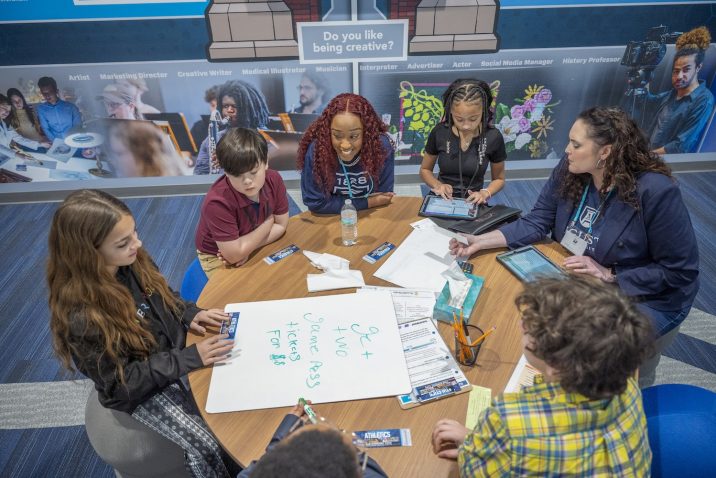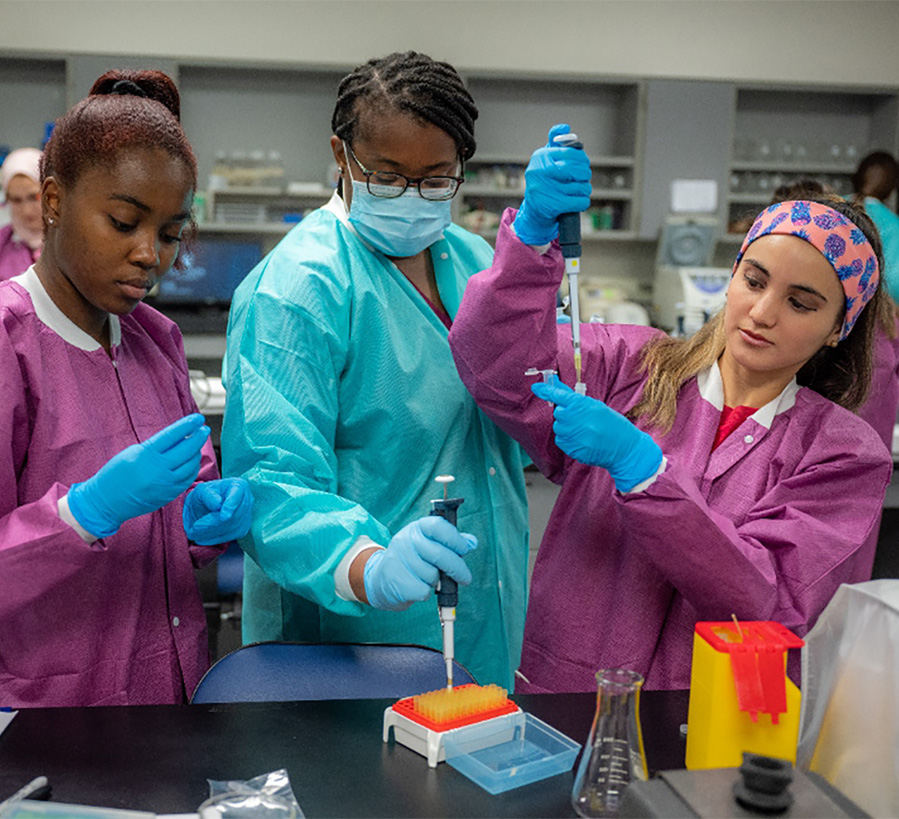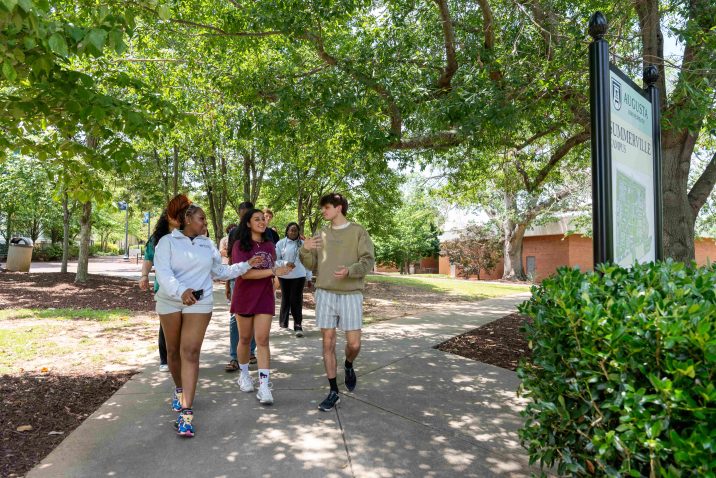Clinical Laboratory Science
As a clinical laboratory scientist (or medical laboratory scientist or medical technologist depending on where you’re working), you’ll work with sophisticated laboratory equipment to assist the health care team in maintaining patient health as well as diagnosing and treating disease.
Using computerized equipment and established laboratory procedures, clinical laboratory scientists perform a full range of tests in areas including hematology, immunohematology, microbiology and emerging diagnostics, ultimately improving the lives of patients through accurate and thorough laboratory results.
Approximately 60-70% of all clinical diagnoses are made on the basis of laboratory results.
By choosing to earn your Master’s in Clinical Laboratory Science from Augusta University’s College of Allied Health Sciences, you’ll be joining a clinical laboratory science program with a long track record of producing exhaustively trained clinical laboratory scientists.
Clinical Laboratory Science is for you if you consider yourself
Life-Changing
Life-Saving
Education
Want to learn more about the Clinical Laboratory Science program at Augusta University?
Request InfoWhat You'll Study
Coursework
Students in Augusta University’s Master of Health Science in Clinical Laboratory Science program will complete 74 graduate semester credit hours over five semesters, culminating in a research or capstone project. Because the program exposes students to clinical and laboratory experiences along with classwork, students will spend time in accredited laboratories throughout Georgia and the nation.
After completing the program, graduates are eligible to sit for the National MLS certification examination offered by the American Society for Clinical Pathology Board of Certification.
Curriculum | Admissions Criteria | Tuition and Fees | Application Deadlines
Experience-based Education
Outside the Classroom
Clinical Laboratory Science students learn by doing, with laboratory and clinical experience built into the program.
There are currently 29 clinical affiliates associated with the program. Clinical faculty at these sites serve as educational coordinators for the students.
Because Augusta University’s Clinical Laboratory Science faculty are actively engaged in research and scholarship, students benefit from having faculty mentors to assist them while working on the research projects required for the fulfillment of the degree.
Accomplished Faculty
Clinical Laboratory Science faculty are recognized educators, researchers and clinical experts who are committed to providing innovative opportunities for student learning and professional growth.
Research Opportunities
As a designated research university, Augusta University students have the opportunity to explore research opportunities and assist faculty in their own research endeavors.
Student Success
The Clinical Laboratory Science program has experienced a 100% graduation rate for the past three years, with a graduation placement rate of 100% for the same period of time.
Multiple Campuses
Students can pursue their graduate degree on the Health Sciences Campus in Augusta or at the university’s mobile laboratory in Lawrenceville, Georgia.
Your Future
Career Options
Clinical Laboratory Scientists work in a variety of locations, including general hospital laboratories, physicians’ offices, private labs, the armed forces, medical research programs, pharmaceutical labs, food industry, chemical industry, state public health department laboratories, Centers for Disease Control (CDC) and forensic crime labs.
According to the U.S. Bureau of Labor Statistics, growth in this field is expected to grow much faster than average with a projected growth rate of 5% over the next decade. About 24,200 clinical lab technologist and technician openings are projected annually
Admissions Criteria at a Glance
GPA: Overall GPA of 2.75 on a 4.0 scale at the Baccalaureate level calculated on all undergraduate work.
Degree Requirement: Minimum of a Bachelor’s degree or equivalent from an accredited college or university.
Transcripts: Official transcripts are required from all universities and colleges ever attended. Unofficial transcripts from US colleges and universities can be used in the admissions review process in lieu of official transcripts for this program.
Standardized Test Requirements: GRE score of 300 total (combined Verbal and Quantitative Scores).
Letters of Recommendation: Recommendations from three individuals must be submitted through the application portal.
International Students: Please review the verification process for international transcripts and the english proficiency requirement.
Tuition & Fees Estimate
$4,801*
Estimated total
Full-time / In-State / Per Semester
$401
Tuition Per Hour
$675
Mandatory Fees
View Detailed Program Tuition
*Tuition & Fees listed here are for in-state students enrolling in the university for Fall 2025 semester.
Detailed Program Tuition InformationApplication Deadlines
Fall '24 Deadline
- June 1, 2024
Web '24 Deadline
- June 1, 2024
Early submission of all application materials is strongly advised.
All required application materials and documents must be received in order for an application to be considered complete and before an admission decision can be made. Applications and supporting materials received after the program deadline will only be considered on a space-available basis.
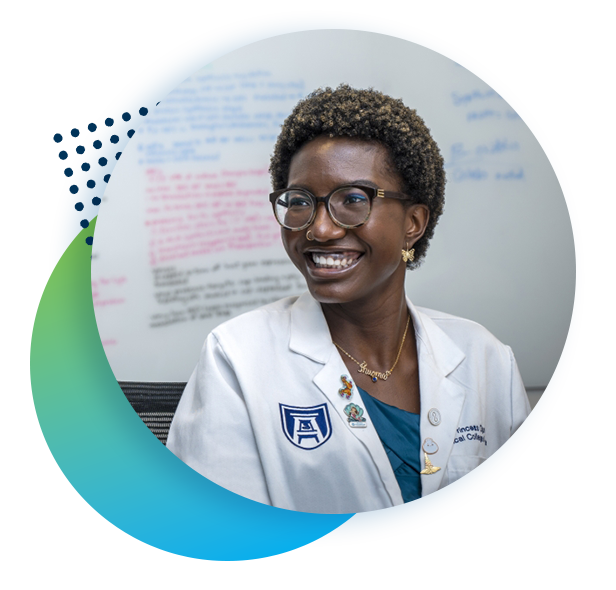
Why Augusta?
An established program with celebrated faculty means you’re prepared for the challenges of whatever work environment you choose.
As one of Georgia’s four research universities, Augusta University provides unparalleled opportunities for research and scholarship, with state of the art labs and equipment.
With nearly 30 different clinical affiliates, you’ll be exposed to real-world environments that can vault you to the top of the job market.
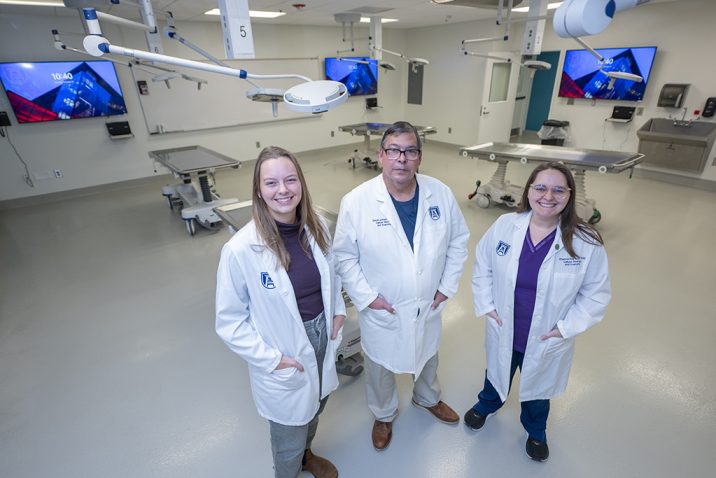
Families leave lasting contribution to medical science with body donations
Families leave lasting contribution to medical science with body donations